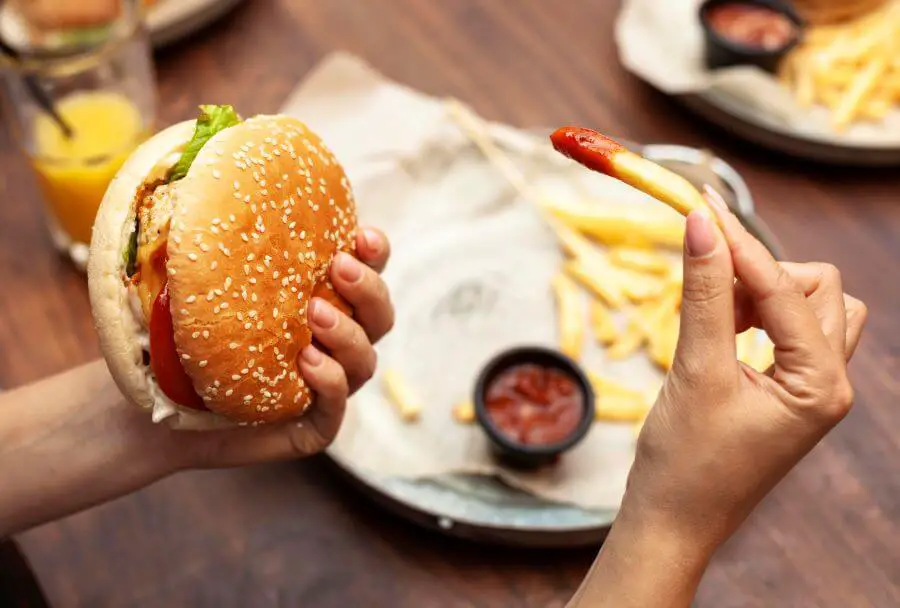Unveiling the Dollar Menu
Evolution of McDonald’s Pricing
The pricing strategy of McDonald’s has seen a considerable evolution since its inception in 1940. The fast-food giant has always aimed to offer affordable meals to a vast consumer base, and this principle is evident in its various pricing strategies over the years. One of the most significant steps in this evolution was the introduction of the Dollar Menu.
Launched in 2002, the Dollar Menu was a revolutionary concept that offered select items at a fixed price of one dollar. This strategy aimed to attract customers looking for a quick, affordable meal without compromising on taste or quality. Over time, the Dollar Menu expanded to include more items and evolved into the $1 $2 $3 Dollar Menu, providing even greater variety to customers (Source 1).
Historical Significance of the Dollar Menu
Historically, the Dollar Menu has played an instrumental role in McDonald’s success. It allowed the company to differentiate itself from competitors and appeal to a broader customer base. While the low price point of the Dollar Menu items didn’t directly contribute significantly to profits, it served a greater strategic purpose.
 McDonald’s Dollar Menu: Pricing Strategies” />
McDonald’s Dollar Menu: Pricing Strategies” />The Dollar Menu attracted customers into the stores, where they often ended up purchasing additional higher-priced items, thus indirectly boosting sales. Moreover, the Dollar Menu reinforced McDonald’s image as a value-for-money brand, which helped strengthen customer loyalty (Source 2).
Decoding Pricing Strategies
Value Perception and Positioning
McDonald’s has always positioned itself as a brand that offers value for money. This positioning is evident in its pricing strategies, especially the Dollar Menu. By offering select items at a low price point, McDonald’s creates a perception of value in the minds of the customers. This strategy not only attracts price-conscious consumers but also encourages repeat purchases, thereby driving sales growth (Source 3).
The Psychology of the “Dollar” Price Point
The “Dollar” price point plays a significant role in McDonald’s pricing strategy. The psychological impact of seeing a menu item priced at just a dollar can be substantial. It creates an illusion of getting a deal and encourages impulse purchases. This strategy is known as psychological pricing and is commonly used in retail to influence consumer behavior (Source 4).
Dollar Menu vs. Economic Trends
Adapting to Inflation Over the Years
Inflation naturally leads to rising costs, and this economic reality has impacted the Dollar Menu over the years. Given the increasing costs of ingredients, labor, and overheads, maintaining a one-dollar price point became unsustainable. As a result, McDonald’s restructured the Dollar Menu into the $1 $2 $3 Dollar Menu in 2018, offering items at three different price points. This move allowed the company to adjust to inflation while still providing value to customers (Source 5).
Economic Impact on Consumer Behavior
Economic conditions significantly influence consumer behavior. During economic downturns, consumers tend to become more price-conscious, and affordable offerings like the Dollar Menu become more attractive. Conversely, during periods of economic prosperity, consumers may be willing to spend more, allowing McDonald’s to successfully sell higher-priced items alongside the Dollar Menu offerings (Source 6).
Beyond the Dollar: Menu Engineering
Upselling and Cross-Selling Tactics
McDonald’s employs several upselling and cross-selling tactics to increase its average transaction value. For example, the company strategically places higher-margin items next to Dollar Menu items on the menu board, encouraging customers to add these items to their order. Furthermore, McDonald’s staff are trained to suggest additional items or larger sizes to customers, further boosting sales (Source 7).
Profitability through Product Placement
The placement of products on the menu board can significantly impact profitability. McDonald’s uses a technique known as menu engineering to strategically arrange items on its menu. High-profit items are placed in areas that draw the customer’s eye, thus increasing their likelihood of being ordered. This strategy, combined with the Dollar Menu, allows McDonald’s to maximize profits while offering value to customers (Source 8).
Competing in the Fast-Food Market
Dollar Menu Wars: Competitor Analysis
The success of McDonald’s Dollar Menu has prompted other fast-food chains to introduce similar offerings. For example, Burger King launched its own value menu, and Wendy’s introduced a “4 for $4” deal. These moves have led to intense competition in the fast-food market, often referred to as the “Dollar Menu Wars.” Despite this competition, McDonald’s has managed to maintain its position due to its strong brand and loyal customer base (Source 9).

Strategic Responses to Market Changes
McDonald’s has demonstrated an impressive ability to adapt its pricing strategy in response to market changes. The company continuously monitors various factors such as production costs, competitor pricing, and consumer demand to optimize its pricing strategy. These strategic responses have helped McDonald’s maintain its competitive edge in the fast-food market (Source 10).
Consumer Insights and Feedback
Understanding Customer Preferences
Understanding customer preferences is crucial to McDonald’s pricing strategy. The company regularly conducts market research to gain insights into changing consumer trends and preferences. These insights inform McDonald’s pricing decisions and help ensure that its offerings remain relevant and appealing to customers (Source 11).
Social Media’s Impact on Dollar Menu Popularity
Social media has played a significant role in promoting McDonald’s Dollar Menu and boosting its popularity. The company leverages various social media platforms to engage with customers, gather feedback, and promote its offerings. Positive customer reviews and word-of-mouth publicity on social media have significantly contributed to the Dollar Menu’s success (Source 12).
The Future of McEconomics
Innovations in Value-Based Offerings
As consumer preferences evolve, McDonald’s will continue to innovate its value-based offerings. The company is likely to introduce new items on its Dollar Menu and experiment with different price points to cater to a diverse customer base. Additionally, McDonald’s may leverage technology to offer personalized deals and discounts, further enhancing the perception of value (Source 13).
Adapting to Evolving Consumer Expectations
Consumer expectations are continually evolving, and McDonald’s will need to adapt its pricing strategies accordingly. For example, there is growing demand for healthier food options, and McDonald’s may need to adjust its pricing to accommodate these offerings. Similarly, consumers are increasingly seeking convenience, and this trend could influence McDonald’s pricing for delivery or drive-thru orders (Source 14).
Corporate Responsibility and Sustainability
Balancing Affordability with Quality
McDonald’s is committed to providing quality food at affordable prices. This commitment is a delicate balancing act, especially given the rising costs associated with sourcing high-quality ingredients. However, McDonald’s has managed to maintain this balance through efficient supply chain management and strategic pricing (Source 15).
Sustainable Practices in Fast-Food Pricing
Sustainability is becoming increasingly important in the fast-food industry. Consumers are more conscious of the environmental impact of their food choices, and this consciousness can influence their purchasing decisions. McDonald’s is aware of this trend and is exploring ways to incorporate sustainable practices into its pricing strategy. For example, the company may choose to source ingredients from sustainable sources, even if it involves higher costs, as consumers may be willing to pay a premium for such offerings (Source 16).

McEconomics Case Studies
Successful Dollar Menu Campaigns
Over the years, McDonald’s has run several successful Dollar Menu campaigns. These campaigns have effectively communicated the value proposition of the Dollar Menu, driving traffic to stores and boosting sales. For example, the “I’m Lovin’ It” campaign in 2003 significantly increased awareness of the Dollar Menu and contributed to a surge in sales (Source 17).
Learning from Challenges: When Dollar Menus Fall Short
While the Dollar Menu has been largely successful, McDonald’s has also faced challenges. For instance, the Dollar Menu’s relaunch in 2018 as the $1 $2 $3 Dollar Menu met with mixed reviews. Some customers felt that the new menu didn’t offer the same value as the original Dollar Menu. However, McDonald’s learned from this feedback and made adjustments to the menu, demonstrating its commitment to meeting customer expectations (Source 18).
Conclusion
The Ongoing McEconomics Experiment
The evolution of McDonald’s pricing strategies, including its Dollar Menu, can be seen as an ongoing experiment in ‘McEconomics’. The company’s ability to adapt to changing market conditions, understand consumer behavior, and deliver value through strategic pricing has been key to its success.
McDonald’s Dollar Menu: A Pillar of Fast-Food Pricing Strategy
Despite changes over the years, the Dollar Menu remains a pillar of McDonald’s—and indeed, the broader fast-food industry’s—pricing strategy. It embodies the company’s commitment to providing value for money and has played a crucial role in shaping consumer perceptions of the brand. As McDonald’s continues to innovate and adapt, the Dollar Menu will undoubtedly remain a significant component of its pricing strategy.





